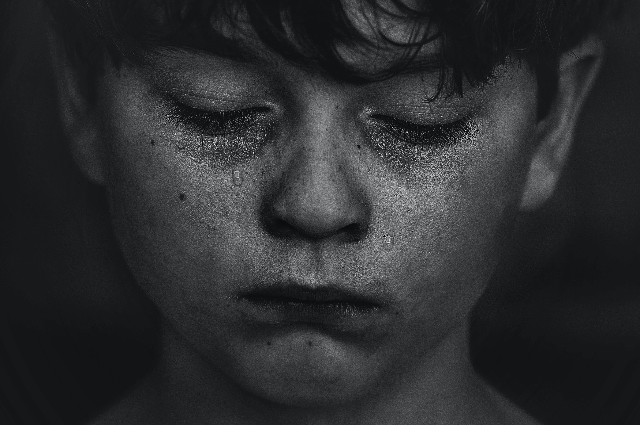
Imagine you are at the end of a dark, forlorn tunnel, feeling lost, struggling to find some hope within your panic-stricken heart and gasping for breath while you run to reach the little light glowing at the end of that wrecked burrow. This sure looks like a tragic state to be in. Right?
Now, visualize that while you are slogging your path through this miserable tunnel of agony, where you have nobody to accompany you except for your demons and dreadful heart, you hear a voice, a voice brimming with confidence, hope and all things pleasant and positive! And guess what the voice says?
Instead of acknowledging your misery and helping you find a way to get out of it, this voice tells you how lucky you are to be in that tunnel of torment. It tells you that you have it so much better than the rest just because you are in a dark and damp never-ending tunnel instead of a concentration camp where you would have immediately succumbed to the fumes of hydrogen cyanide. Certainly, this voice is correct to a certain extent but does that imply that your misery is just another fleeting sorrow that must not be paid heed to? So, while you chase the light with blurred vision, parched throat, thumping heartbeat and existential dread, all you get to hear is how a million people would kill to be at your place because apparently, it is so much better than the netherworld.
This analogy is just a glimpse into the abyss of toxic positivity. ‘Toxic positivity’ - an oxymoron in itself, is the facade of putting on a happy face at times of crisis and smiling through it all instead of processing emotions and dealing with them the right way. While social conditioning might have taught us that subduing any kind of negativity does not seem like a really bad thing to do, in reality, bottling up emotions can prove to be a really dangerous game to play.
Physical stress on the body, increased risk of diabetes or cancer and premature death are just some of the few afflictions that come along with the attitude of always being on cloud nine even when the cloud is bursting. In the long run, these problems are also coupled with lowered self-esteem, distorted memory or increased blood pressure. An overreaction to a seemingly trivial problem is another example of how our bodies release those pent up emotions.

The concept traces its origin to the time before the pandemic when the ‘good vibes only’ perspective was being propagated by influencers everywhere on social media. It has been subtly yet seamlessly ingrained in us and we practice it in ways we are not even aware of. Experiencing guilt for being sad, dismissing the difficult feelings of other people by counting them as inconsequential or not voicing our opinions due to the fact that they might create some sort of disharmony in a family or organization are just some of the elusive ways we have been practicing toxic positivity without even knowing it.
In a world suffering from a raging pandemic, where collapsing mental health continues to remain the most tabooed topic, toxic positivity just does its share of harm by denying the existence of mental health issues as a whole. Even if one does not speak of the cases of adverse mental health issues or depression, normal sorrowful or negative emotions like envy, dejection and anger are something experienced by each individual and must not be subdued. For sure, thinking positively and looking at the brighter side of things in dire times is a great approach to adopt in life, but the problem arises when one lets their repressed emotions fester into chronic wounds that might last a lifetime.
And let’s be honest with ourselves. Life is no bed full of roses. So why do we need to act like it is one? Why do we need to even harness the hurricane of our fluctuating yet profound emotions into oversimplified snippets of happiness or sorrow? Why not let it out in the most healthy manner possible? Processing our emotions the right way is one of the most essential life skills, yet it is hardly ever touched upon by schools or institutions of importance. The solution is to provide a safe space to people where they can let out their feelings without being subjugated by judgement or mockery.
So, the next time someone tells us that their life is a tornado and they feel like a cow being spun around for cinematic value, let’s not counter them with phrases like - good vibes only, everything happens for a reason, happiness is a choice or that they could have had it worse. Let’s just lend a listening ear and offer an empathetic embrace of understanding rather than judgement.
What is life after all without a little bit of anger, malice or regret..!
